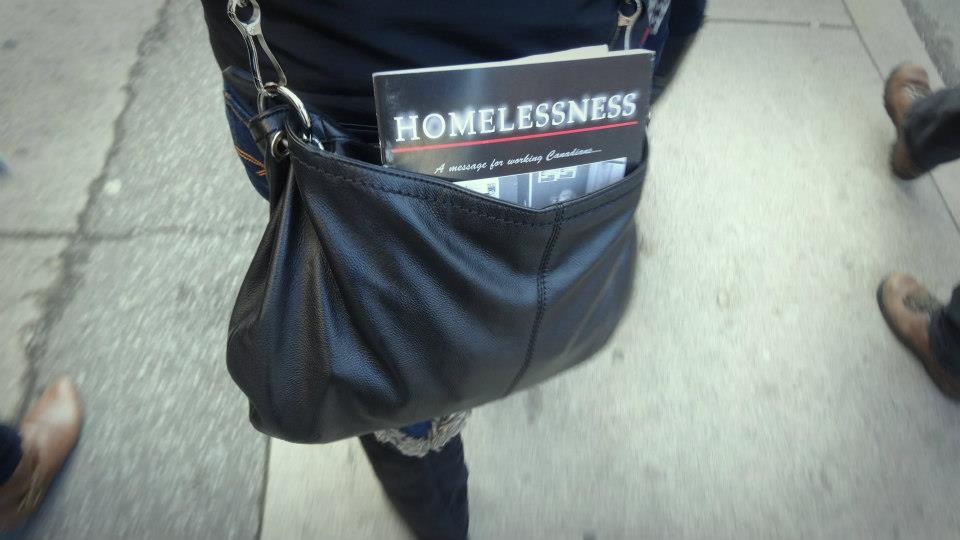There is a parable called Upstream Downstream that has guided me in my work as a street nurse. It’s about visiting health care workers in a developing country. Standing by a riverbed they suddenly see bodies floating down the river. Frantically, they start pulling the bodies out and begin resuscitation. When they look up they see a continual flow of bodies down the river. They call for help and keep pulling the bodies onto the riverbank and apply CPR. Finally, one of them asks: “Who or what is upstream pushing the bodies into the river?”
This time of year people are always asking me what they can do to help the homeless. Where can they help to serve a Christmas dinner in a shelter? What organization can they collect socks for? Is it okay to hand out sandwiches or bags with toiletries to homeless people who are lying on the sidewalk downtown?
I have a formula to help answer those questions and it’s based on the notion that social justice involves more than charity. Socks are not enough.
I once heard my longtime friend and colleague Michael Shapcott answer these questions in a radio interview with this easy math formula and I’ve used it ever since.
The equation is simple. It’s one-third plus one-third plus one-third and it’s a formula for social justice not charity.
It’s a framework that can help you think about your personal response to any social justice issue. You can use this equation if you work on the local, national or global level on homelessness, hunger, climate change, violence against women — you name it.
Since I’m a street nurse, I’ll use homelessness to illustrate.
The formula ingredients could be your time, your energy, your passion, your creativity, your letter writing or some other skill, your donations including your money.
Consider allocating one-third of those ingredients to the downstream solutions that are the services and programs that directly help homeless people, one-third to the upstream solutions that include affordable housing, and last but not least allocate one-third to the advocacy efforts for immediate and long-term solutions.
What would that look like?
The downstream one-third would support the front-line organizations in your community that directly help homeless people. Think homeless shelters, violence against women shelters, drop-in centres and outreach programs. These organizations provide shelter, safety, food and clothing and offer life-sustaining support. The recession and growing homelessness, in the absence of a national housing program, have meant that these groups are resource challenged. Learn who some of these groups are in your community and contact them to see what they need. Collecting socks might make you feel good but you may learn that agencies need knapsacks for 12 year old boys, gift certificates or bus tickets for their clients or maybe funds to help them buy a new appliance for their busy kitchen.
The upstream one-third would support affordable housing. This involves finding out who is building affordable housing in your community. There won’t be many answers here but your local city councillor, MPP or MP should know who they are. These groups really need your help. They are the not-for-profit groups that are desperately trying to piece together monies for their housing. You can hold a fundraiser, ask your friends to give donations in lieu of presents, and support Yes In My Backyard (YIMBY) efforts to counter discrimination against affordable housing. Even if the housing has already been built and is now occupied, these organizations still rely on donations: new duvets, furniture, kitchen wares that help new tenants moving in who might have been homeless.
The final one-third is also an upstream solution and it involves advocacy. This is the work by individuals and groups that ensure more shelters are opened to meet the need, that cold alerts are called and warming centres opened, and keep the campaign for a national housing program on the national agenda. Many of these are grassroots groups that work in coalition. They rarely receive government, foundation or United Way funding. They may not have a charitable number but their work is invaluable. Follow and support their appeals to attend rallies, to write your local politician, to sign petitions. You can help them to plant the seeds for social justice, create the wind for social change and flex muscle to fight for public policy wins such as a national housing program.
If you apply your effort to the three thirds, not just the downstream piece, you can be part of the real solution, a just solution.



